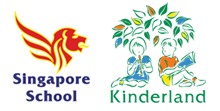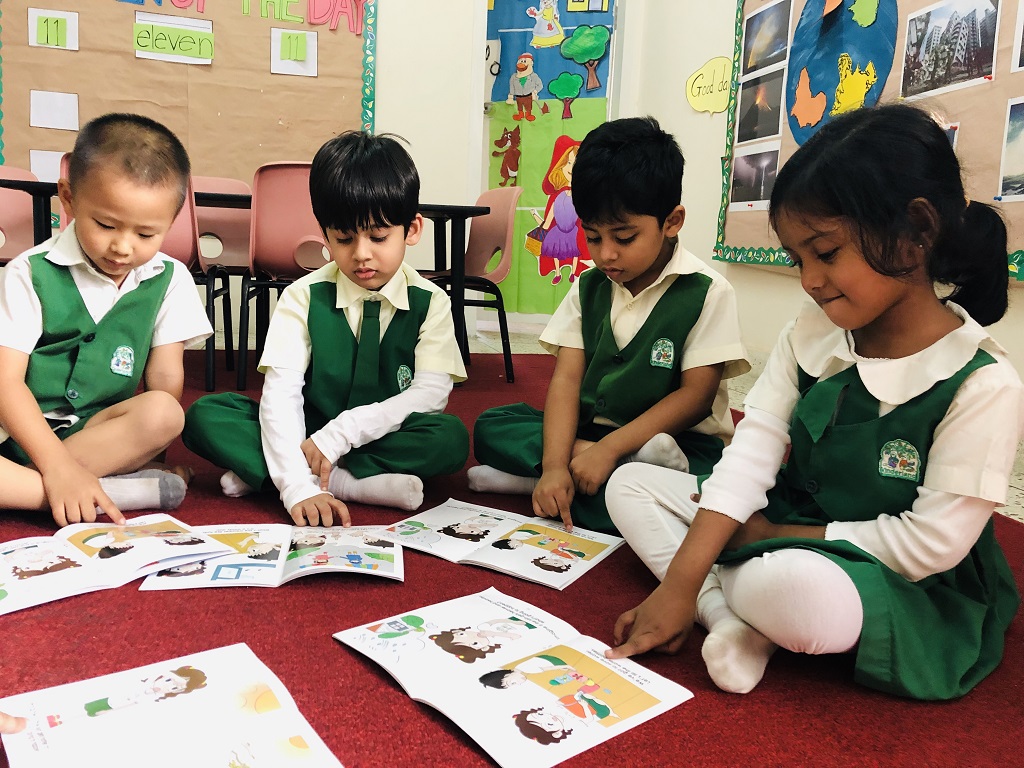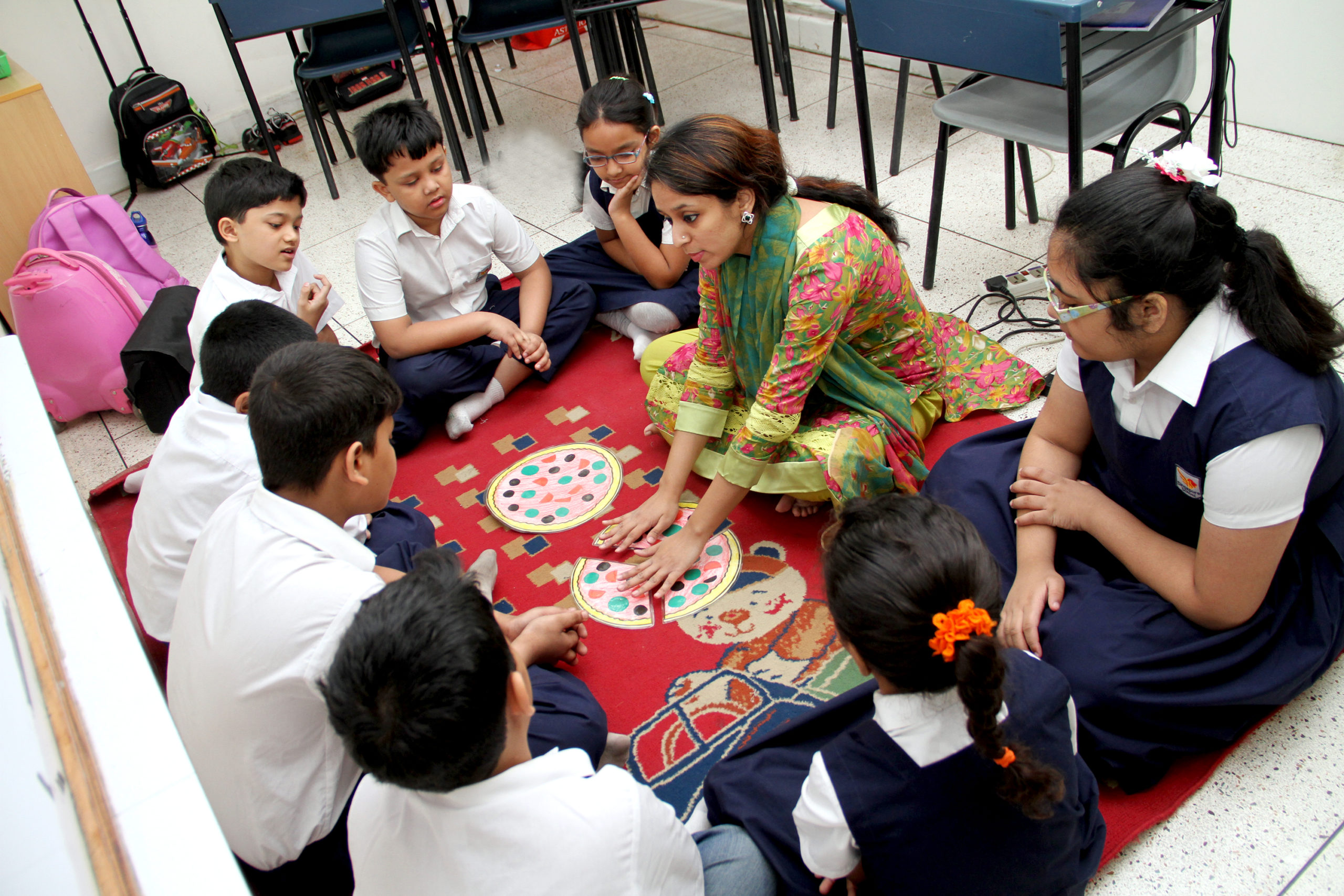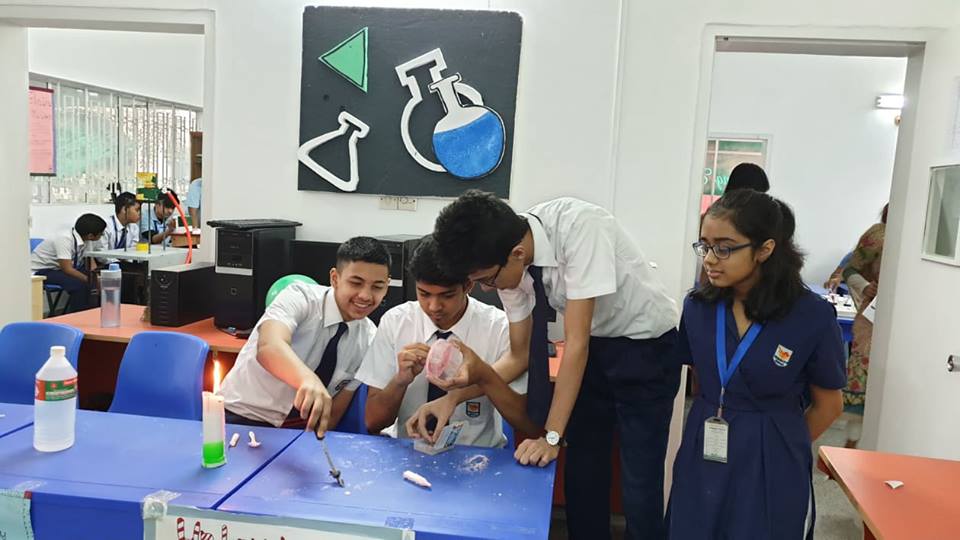Primary Curriculum: Primary (1-6)
Singapore School Kinderland focuses on the holistic learning approach with constructive curriculum for the development of the students.
Academics
The primary years curriculum is a well designed research based curriculum that begins from grade 1 and follows through till grade 6.
Here the students develop their knowledge and skills through various activities. The curriculum focuses on Theme based and Program based learning system that help develop the students’ skills and concepts.
The curriculum focuses on:
Literacy:
- Reading: Students develop fluency, enhance vocabulary &language and develop comprehension skills through shared, guided and finally silent reading. Students grow their ability to compare and contrast, sequencing events, prediction and retelling a story.
- Writing: Students learn to write variety of genres and develop different conventions and skills of writing eg punctuation, sentence structure, sentence manipulation and modification and uses of vocabulary and grammar. They also develop the skills on the process of writing eg topic selection, planning and organizing, researching, drafting, altering texts, proof reading, checking spelling, publishing and sharing.
Numeracy :
- Mathematics: The Mathematics Curriculum consists of Number Concepts and Operations, Measurement, Space, Chance and Data.
Through comprehensive activity based hands on learning students develop creative and critical thinking skills, efficiency in problem solving and mental calculation skills. Illustration and games are incorporated to reinforce and consolidate their learning
Science: The Science curriculum consists of System, Cycle, Energy, Diversity and Interaction. It is an inquiry based learning where students learn through questioning, finding evidence, explanation, connection and communication.
The Instructional Strategies are:
- Engagement: Setting the stage of learning
- Exploration: Hands on activities
- Explanation: Check own explanation with specific explanation
- Elaboration: Reinforcing scientific concepts
Health Education:
It is a comprehensive package that adopts a positive approach to the teaching of Health education. It aims to help students develop positive thinking habits and attitudes.
Students become more receptive, motivated and show a greater interest in cultivating good lifelong health habits. The interesting activities and mini projects foster cooperative learning and promote creativity.
Social Studies/Bangladesh Studies
The Social Studies learning area develops students’ understanding of how individuals and groups live together and interact with their environment. Students develop a respect for cultural heritage and a commitment to social justice, the democratic process and ecological sustainability.
The progress map of Social Studies describe student achievement on the following four outcomes that provide a framework for Primary 1 – Secondary 3:
- History– Culture, Time – Continuity and Change
- Geography– Resources, Place and Space
- General knowledge– Investigation, Communication and Participation
- Civics and Citizenship– Natural and Social Systems
Physical Education / Swimming
Through emphasizing on the variety of Physical Education, games and sports including the Swimming program the students develop self-confidence, responsible habit, team spirit and a positive attitude towards a healthy life-style.
IT (Computer Science)
Students knowledge of computing enhances through various project based hands on activities.
Art and Craft – Art can connect people more deeply to the world and open them to new ways of seeing, creating. Our students thoroughly enjoy these classes where they develop critical thinking and hand manipulation through sketching, painting, pottery, craft work, origami and other interesting activities
Music – Our Music is based on the methodologies of renowned pedagogues, Carl Orff and Zoltan Kodaly. We believe that students should learn Music in the same natural way as they learn a language where listening and imitating are key. We have ensured that our Music learning is based on activities students are familiar and comfortable with so that they can express themselves musically with confidence.
Assessment
Classroom observation :
Class Tests
Continual Assessments 1 & 2
Semestral Assessments 1 & 2
Progress Report Books
(Classroom and home assignments)
(Every two weeks end of each topic)
(End of 1st and 3rd Term)
(End of 2nd and 4th Term)
(Provided End of each Term)




